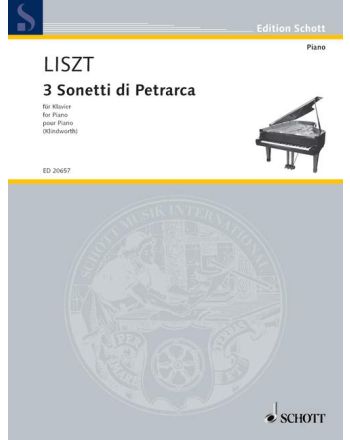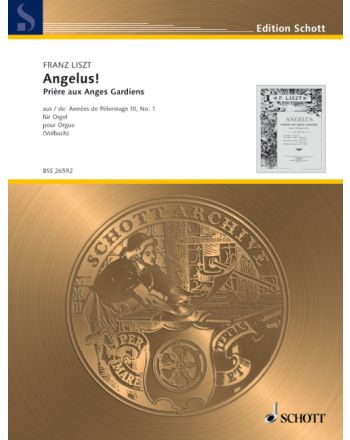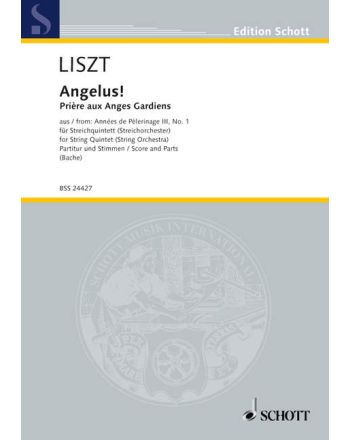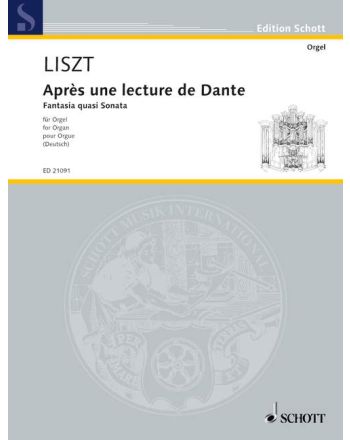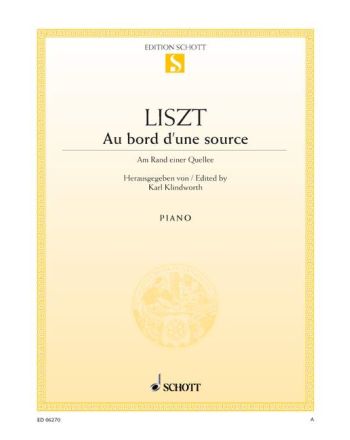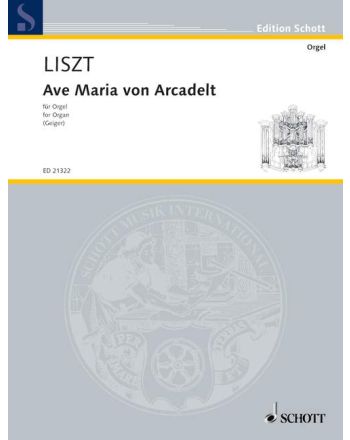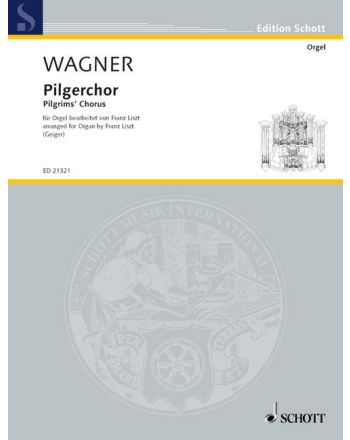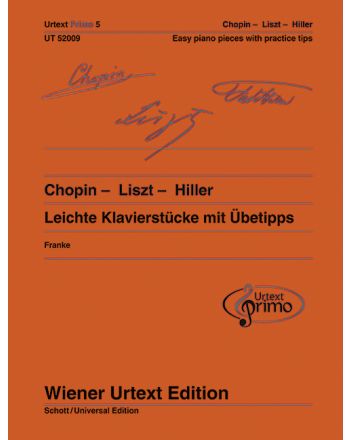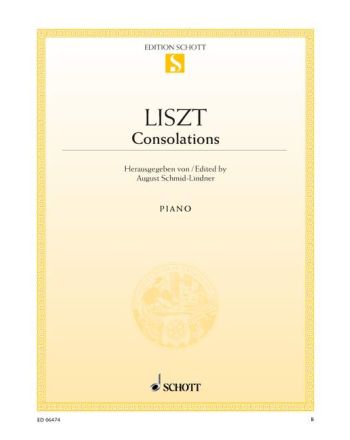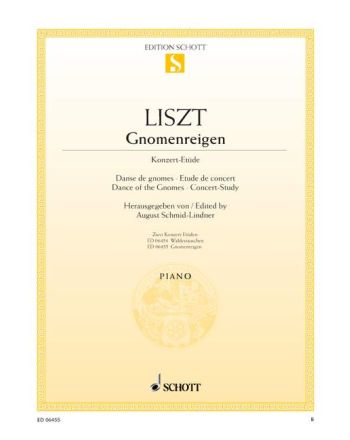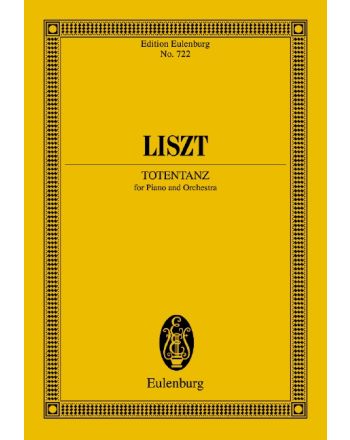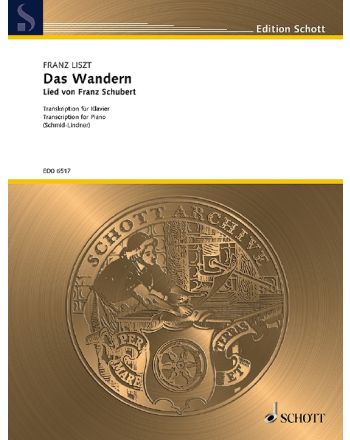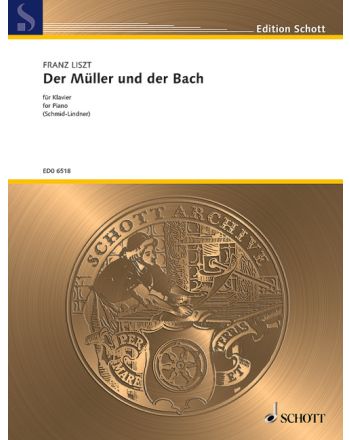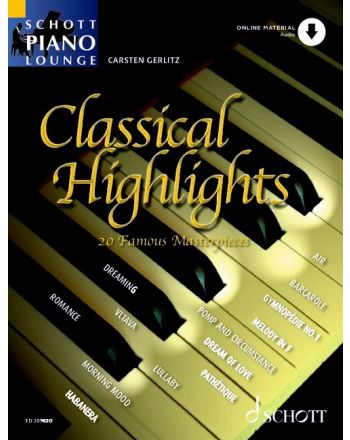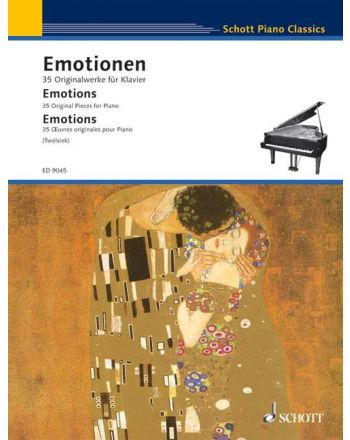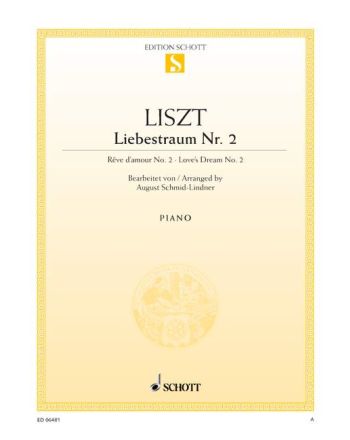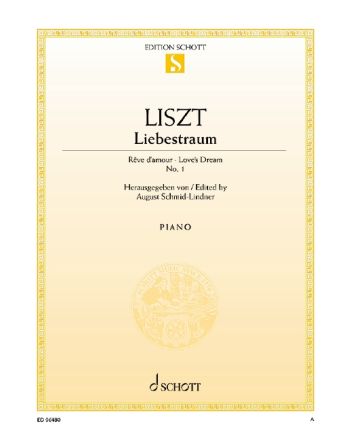Franz Liszt
Pays d'origine:
Hongrie
Date d'anniversaire:
22 octobre 1811
Date de décès:
31 juillet 1886
À propos de Franz Liszt
Franz Liszt, Hungarian composer and pianist, one of the most famous piano virtuosos of his time and protagonist of the New German School.Life:
Liszt studied in Vienna with Carl Czerny (piano) and Antonio Salieri (music theory), later in Paris with Ferdinando Paer (harmony) and Anton Reicha (composition), and undertook concert tours in France and to London. In Paris he met the composers Gioacchino Rossini, Fryderyk Chopin, Hector Berlioz, Vincenzo Bellini, Giacomo Meyerbeer, and Niccolò Paganini, among others, of whose works he wrote individual arrangements which marked the transition to an extremely virtuoso piano style. In addition, he received literary impressions from writers such as Victor Hugo and Alphonse de Lamartine which he processed in his later compositions. From 1835 he lived with Comtesse Marie Cathérine Sophie d'Agoult (*1805, 1876; known as a writer under the pseudonym of Daniel Stern) in Geneva and Italy; best known among their three children is Cosima for being the wife of Richard Wagner from 1870.
Extended concert tours took Liszt to Vienna, Hungary, Berlin and Russia, among other places. In Kiev he met Princess Carolyn Sayn-Wittgenstein (*1819, 1887) who followed him to Weimar where he had been appointed court music director in 1842 and advocated especially performances of contemporary works (Schumann, Berlioz, Wagner). In Weimar, Liszt was the centre of a circle of students (Peter Cornelius, Joseph Raff, Hans von Bülow, Carl Tausig) whose ideas on music and style found expression in the New German School and became known to a wide public through the Allgemeiner Deutscher Musikverein and the magazine »Neue Zeitschrift für Musik«. After some intrigue about the performance of the »Barber of Baghdad« (1858) by Cornelius he resigned from his post as director of the opera in Weimar and went to Rome where he took minor orders, becoming the Abbé Liszt, when his plans to marry the Princess did not come to fruition. In 1875 he became the first president of the newly founded Hungarian Academy of Music in Budapest.
Work:
Liszt was the creator of a new kind of piano music which for the first time went far beyond the technique applied in the study works by Czerny and Friedrich Kalkbrenner, using the whole keyboard and playing with chords and octaves (in different registers), ornaments, leaps, parallel chords or octaves and wide arpeggios. Thus, he achieved differentiated possibilities of tonal expression for the piano (following partly the example of the effects achieved by Paganini on the violin). He was also one of the first pianists to perform without an orchestra: The melody of his piano works is characterized by a vocal line. As for the harmony, he started from Chopin, Schubert and the music theoretician François-Joseph Fétis and exerted his influence to Wagner, the Impressionist sound world of Debussy and (through quartal harmony, polytonality) into 20th-century music. With orchestral works he created the symphonic poem, most of them one-movement programme compositions in which a poetic text (sometimes even an illustration) was set to music.
Liszt's sacred and liturgical works show influences of the Caecilian movement and combine characteristic features of his own tonal language with Gregorian elements. As a reformer, he was eventually active in the field of organization of the musical life. For example, he advocated the improvement of the artist's status, music lessons at primary schools and the organization of music festivals. As a co-founder of the Allgemeiner Deutscher Musikverein, he created a platform for contemporary music.
Works:
Orchestral works: Symphonic poems: Tasso (1849); Prometheus (1850); Ce qu'on entend sur la montagne (1850); Orpheus (1854); Mazeppa (1854); Les Préludes (1854); Hungaria (1856); Die Ideale (1857); Hunnenschlacht (1857); Faust Symphony (1857); Symphony of Dante's Divina commedia (1857); Hamlet (1858); Trois odes funèbres (1860, 1864, 1866); Two Episodes from Lenau's Faust (1861; No.2: »Mephisto Waltz«).
Works for piano and orchestra: Concerto No. 2 in A major (1839, revisions until 1861); Concerto No. 1 in E flat major (1849).
Piano works: Étude pour le pianoforte en quarante-huit exercices (1826, only 12 Études published; new version in 1838; as Études d'exécution transcendante, 1851); Grande fantaisie de bravoure sur la Clochette de Paganini (1832); Apparitions (1834); Années de pèlerinages (between 1835 and 1877, including the Dante Sonata, 1858, and Venezia e Napoli, 1859); Harmonies poétiques et religieuses (184552); Consolations (1849); Sonata in B minor (1853); 19 Hungarian Rhapsodies (published from 1851).
Organ works: Prelude and Fugue on the Name of Bach (1855; 2nd version 1870); Variations based on the chromatically descending bass line of Bach's cantata »Weinen, Klagen« (1863).
Vocal works: Oratorio »Christus« for soprano, alto, baritone, bass, choir, orchestra and organ (185566); oratorio »The Legend of St. Elizabeth« for soprano, alto, baritone, bass, choir, orchestra and organ (185762); Missa choralis for four solo voices, choir and orchestra (1865); Hungarian Coronation Mass for three solo voices, choir and orchestra (1867); Requiem for four solo voices, male choir, organ and brass (1868); Cantico del Sol di S. Francesco Assisi for baritone, male choir, organ and orchestra (1862; revised in 1880); Legend of »Sainte Cécile« for mezzo-soprano, choir and orchestra (1874); 82 songs.
Liste d'œuvres
Produits
-
Etude en douze exercices. Edité d'après les sources et muni de doigtés et notes sur l'interpretationCompositeur: Franz LisztEditeur: Christian UbberMedia Type: PartitionEdition: UrtextausgabeSérie: Wiener Urtext Edition
Instrumentation: pianoNuméro du produit: UT50232Format papierFormat papierEn stock18,50 €TTC, hors expédition -
Compositeur: Franz LisztEditeur: Hideo KobayashiMedia Type: PartitionSérie: zen-on piano library
Instrumentation: pianoNuméro du produit: ZO 114020Format papierFormat papierEn stock22,95 €TTC, hors expédition -
Compositeur: Franz Liszt | Franz SchubertMedia Type: PartitionSérie: zen-on piano library
Instrumentation: piano avec parolesLangue: Allemand, JaponaisNuméro du produit: ZO 101874Format papierFormat papierEn stock28,95 €TTC, hors expédition -
Compositeur: Franz LisztEditeur: Robert ColletMedia Type: Partition électronique en PDFEdition: Partition d'étudeInstrumentation: orchestreNuméro du produit: ETP 1361 Q4651Partition PDFPartition PDFEn stock12,99 €TTC
-
für Klavier und OrchesterCompositeur: Franz LisztMedia Type: Matériel en location / d'exécutionEdition: Matériel d'exécutionMatériel en location / d'exécutionMatériel en location / d'exécution
-
Compositeur: Franz LisztEditeur: Karl KlindworthSérie: Edition Schott
Instrumentation: pianoNuméro du produit: ED 20657Type de produitEn stockPrix à partir de 8,99 €TTC -
in three Character-PicturesCompositeur: Franz LisztEdition: Partition d'étudeInstrumentation: ténor, choeur d'hommes et orchestreNuméro du produit: ETP 477Type de produitEn stockPrix à partir de 18,99 €TTC
-
A majorCompositeur: Franz LisztEditeur: Nils Franke | Ates OrgaMedia Type: Partition électronique en PDFInstrumentation: pianoNuméro du produit: ED 9054 Q17257Partition PDFPartition PDFEn stock1,99 €TTC
-
E majorCompositeur: Franz LisztEditeur: Nils Franke | Ates OrgaMedia Type: Partition électronique en PDFInstrumentation: pianoNuméro du produit: ED 9054 Q17255Partition PDFPartition PDFEn stock1,99 €TTC
-
choisis par Nils FrankeCompositeur: Franz LisztEditeur: Nils Franke | Ates OrgaSérie: Schott Piano Classics
Instrumentation: pianoNuméro du produit: ED 9054 Q17250En stockÀ partir de 1,99 € -
Prière aux Anges GardiensCompositeur: Franz LisztArrangeur: Fritz VolbachSérie: Schott Archive
Instrumentation: orgueNuméro du produit: BSS 26592Type de produitEn stockPrix à partir de 7,99 €TTC -
Prière aux Anges gardiensCompositeur: Franz LisztArrangeur: Walter BacheEdition: Partie séparée, KontrabassSérie: Edition Schott
Instrumentation: quatuor à cordes ou quintette à cordes (orchestre à cordes)Numéro du produit: BSS 24427-15Type de produitEn stockPrix à partir de 3,99 €TTC -
Prière aux Anges gardiensCompositeur: Franz LisztArrangeur: Walter BacheEdition: Partie séparée, VioloncelloSérie: Edition Schott
Instrumentation: quatuor à cordes ou quintette à cordes (orchestre à cordes)Numéro du produit: BSS 24427-14Type de produitEn stockPrix à partir de 3,99 €TTC -
Prière aux Anges gardiensCompositeur: Franz LisztArrangeur: Walter BacheEdition: Partie séparée, ViolaSérie: Edition Schott
Instrumentation: quatuor à cordes ou quintette à cordes (orchestre à cordes)Numéro du produit: BSS 24427-13Type de produitEn stockPrix à partir de 3,99 €TTC -
Prière aux Anges gardiensCompositeur: Franz LisztArrangeur: Walter BacheEdition: Partie séparée, Violine IISérie: Edition Schott
Instrumentation: quatuor à cordes ou quintette à cordes (orchestre à cordes)Numéro du produit: BSS 24427-12Type de produitEn stockPrix à partir de 3,99 €TTC -
Prière aux Anges gardiensCompositeur: Franz LisztArrangeur: Walter BacheEdition: Partie séparée, Violine ISérie: Edition Schott
Instrumentation: quatuor à cordes ou quintette à cordes (orchestre à cordes)Numéro du produit: BSS 24427-11Type de produitEn stockPrix à partir de 3,99 €TTC -
Prière aux Anges gardiensCompositeur: Franz LisztArrangeur: Walter BacheEdition: PartitionSérie: Edition Schott
Instrumentation: quatuor à cordes ou quintette à cordes (orchestre à cordes)Numéro du produit: BSS 24427Type de produitEn stockPrix à partir de 9,99 €TTC -
Fantasia quasi Sonata. Arrangée d'après la pièce de pianoCompositeur: Franz LisztArrangeur: Helmut DeutschSérie: Edition Schott
Instrumentation: orgueNuméro du produit: ED 21091Type de produitEn stockPrix à partir de 16,99 €TTC -
Années de PélérinageCompositeur: Franz LisztEditeur: Karl KlindworthInstrumentation: pianoNuméro du produit: ED0 6270Type de produitEn stockPrix à partir de 3,99 €TTC
-
Compositeur: Franz LisztMedia Type: PartitionSérie: Music for Piano, 524
Instrumentation: pianoNuméro du produit: ZO 8002078Format papierFormat papierEn stock7,95 €TTC, hors expédition -
Compositeur: Franz LisztEditeur: Klaus Heizmann | Wilhelm LüttichMedia Type: Partition électronique en PDFLangue: Allemand, Français, Latin, AnglaisNuméro du produit: ED 20769 Q14287Partition PDFPartition PDFEn stock1,99 €TTC
-
Compositeur: Franz LisztEditeur: Jürgen GeigerSérie: Edition Schott
Instrumentation: orgueNuméro du produit: ED 21322Type de produitEn stockPrix à partir de 8,99 €TTC -
Original Compositions and Arrangements for OrchestraCompositeur: Ferruccio Busoni | Alfredo Casella | Antonín Dvořák | Paul Haletzki | Zoltán Kodály | Franz Liszt | Darius Milhaud | Modeste Moussorgski | Edmund Nick | Serge Rachmaninoff | Cyril Scott | Friedrich Smetana | Heitor Villa-Lobos | Bernd Alois ZimmermannArrangeur: Bernd Alois ZimmermannInterprète: Sarah Wegener | Marcus Weiss | Ueli WigetChef d'orchestre: Heinz HolligerOrchestre/Ensemble: WDR SinfonieorchesterMedia Type: 3 CDsNuméro du produit: WER 73872CDCDEn stock39,50 €TTC, hors expédition
-
Poème symphonique No. 1Compositeur: Franz LisztMedia Type: Partition électronique en PDFEdition: Partition d'étudeInstrumentation: orchestreNuméro du produit: ETP 447 Q50143Partition PDFPartition PDFEn stock14,99 €TTC
-
de l'opéra "Tannhäuser" transcrit pour orgue par Franz LisztType de produitEn stockPrix à partir de 8,99 €TTC
-
33 pièces faciles pour piano avec conseils d'exerciceCompositeur: Frédéric Chopin | Ferdinand von Hiller | Franz LisztEditeur: Nils FrankeMedia Type: PartitionEdition: UrtextausgabeSéries: Urtext Primo - ein neues Konzept für den Einstieg in die Klavierliteratur, Vol. 5
Wiener Urtext Edition, Vol. 5
Instrumentation: pianoLangue: Espagnol, FrançaisNuméro du produit: UT52010Format papierFormat papierEn stock15,50 €TTC, hors expédition -
Vol. 5 | 33 easy piano pieces with practising TipsCompositeur: Frédéric Chopin | Ferdinand von Hiller | Franz LisztEditeur: Nils FrankeMedia Type: PartitionEdition: UrtextausgabeSéries: Urtext Primo - ein neues Konzept für den Einstieg in die Klavierliteratur, Vol. 5
Wiener Urtext Edition, Vol. 5
Instrumentation: pianoLangue: Allemand, AnglaisNuméro du produit: UT52009Format papierFormat papierEn stock15,50 €TTC, hors expédition -
Lionel Rogg plays the Van den Heuvel organ of the Victoria Hall in GenevaCompositeur: Georges Bizet | Franz Liszt | Lionel Rogg | Louis Vierne | Charles-Marie Widor | César FranckInterprète: Lionel RoggMedia Type: CDNuméro du produit: ORG 70052CDCDEn stock12,00 €TTC, hors expédition
-
Compositeur: Franz LisztMedia Type: Partition avec CDInstrumentation: pianoNuméro du produit: MMO 3020Format papier + CDFormat papier + CDÉpuisé31,50 €TTC, hors expédition
-
Compositeur: Franz LisztMedia Type: Partition avec CDEdition: Partition d'étudeSérie: Eulenburg Audio+Score
Instrumentation: piano et orchestreLangue: Allemand, AnglaisNuméro du produit: EAS 170Format papier + CDFormat papier + CDEn stock16,50 €TTC, hors expédition -
Compositeur: Franz LisztEditeur: Hans-Günter HeumannMedia Type: Partition électronique en PDFNuméro du produit: ED 20573 Q37Partition PDFPartition PDFEn stock2,99 €TTC
-
Edité d'après les sources par Sabine Ziegler, Préface et Notes sur l'interprétation de Christian Ubber et Lina RamannCompositeur: Franz LisztEditeur: Sabine ZieglerMedia Type: PartitionEdition: UrtextausgabeSérie: Wiener Urtext Edition
Instrumentation: pianoNuméro du produit: UT50165Format papierFormat papierEn stock16,50 €TTC, hors expédition -
Compositeur: Franz LisztEditeur: August Schmid-LindnerInstrumentation: pianoNuméro du produit: ED0 6474Type de produitEn stockPrix à partir de 4,99 €TTC
-
Compositeur: Franz LisztEditeur: Imre SulyokMedia Type: PartitionEdition: Partition d'étudeInstrumentation: solistes (SATB), choeur et orchestreLangue: LatinNuméro du produit: ETP 941Format papierFormat papierEn stock17,00 €TTC, hors expédition
-
Concert StudyCompositeur: Franz LisztEditeur: August Schmid-LindnerInstrumentation: pianoNuméro du produit: ED0 6455Type de produitEn stockPrix à partir de 3,99 €TTC
-
(Version originale)Compositeur: Franz LisztEdition: Partition d'étudeInstrumentation: piano et orchestreNuméro du produit: ETP 722Type de produitEn stockPrix à partir de 12,99 €TTC
-
pour Dantes Divina CommediaCompositeur: Franz LisztEditeur: Imre SulyokEdition: Partition d'étudeInstrumentation: choeur de femmes et orchestreNuméro du produit: ETP 590Type de produitEn stockPrix à partir de 17,99 €TTC
-
Edition: Edition séparéeInstrumentation: pianoNuméro du produit: ED0 6517Type de produitEn stockPrix à partir de 3,99 €TTC
-
Compositeur: Franz Liszt | Franz SchubertArrangeur: August Schmid-LindnerInstrumentation: pianoNuméro du produit: ED0 6518Type de produitEn stockPrix à partir de 5,99 €TTC
-
für Singstimme und Orchester bearbeitet von Bernd Alois ZimmermannCompositeur: Franz LisztArrangeur: Bernd Alois ZimmermannMedia Type: Matériel en location / d'exécutionEdition: Matériel d'exécutionLangue: AllemandMatériel en location / d'exécutionMatériel en location / d'exécution
-
Compositeur: Franz Liszt | Franz SchubertMedia Type: PartitionSérie: Music for Piano, 523
Instrumentation: pianoNuméro du produit: ZO 911523Format papierFormat papierEn stock7,95 €TTC, hors expédition -
Klangdokumente mit den Michaelis-Organisten Alfred Sittard (um 1928), Gerhard Dickel (2001), Christoph Schöner (2002/10/11)Format papierFormat papierEn stock5,00 €TTC, hors expédition
-
Poème Symphonique No. 11Compositeur: Franz LisztMedia Type: PartitionEdition: Partition d'étudeInstrumentation: orchestreNuméro du produit: ETP 457Format papierFormat papierEn stock17,50 €TTC, hors expédition
-
Poème Symphonique No. 12Compositeur: Franz LisztMedia Type: Partition électronique en PDFEdition: Partition d'étudeInstrumentation: orchestreLangue: Allemand, AnglaisNuméro du produit: ETP 458 Q4385Partition PDFPartition PDFEn stock11,99 €TTC
-
für Kornett und OrchesterCompositeur: Franz LisztArrangeur: Eduard BraunMedia Type: Matériel en location / d'exécutionEdition: Matériel d'exécutionMatériel en location / d'exécutionMatériel en location / d'exécution
-
from: Notturno Nr. 3Compositeur: Franz LisztArrangeur: Martin HegelMedia Type: Partition électronique en PDFNuméro du produit: ED 21908 Q44866Partition PDFPartition PDFEn stock1,99 €TTC
-
Compositeur: Franz LisztArrangeur: Carsten GerlitzMedia Type: Partition électronique en PDFInstrumentation: pianoNuméro du produit: ED 20962 Q21168Partition PDFPartition PDFEn stock2,99 €TTC
-
Compositeur: Franz LisztEditeur: Monika TwelsiekMedia Type: Partition électronique en PDFInstrumentation: pianoNuméro du produit: ED 9045 Q23290Partition PDFPartition PDFEn stock2,99 €TTC
-
No. 2 E MajorCompositeur: Franz LisztEditeur: August Schmid-LindnerInstrumentation: pianoNuméro du produit: ED0 6481Type de produitEn stockPrix à partir de 3,99 €TTC
-
No. 1 A flat MajorCompositeur: Franz LisztEditeur: August Schmid-LindnerInstrumentation: pianoNuméro du produit: ED0 6480Type de produitEn stockPrix à partir de 3,99 €TTC






